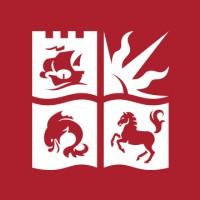MSc Banking, Regulation and Financial Stability
This programme will equip you with the specialist skills and knowledge to pursue a wide range of careers in the banking industry. It has been developed with the needs of the sector in mind and reflects the industry’s growing demand for individuals with an extensive knowledge of regulation and compliance.
Our programme has a distinctive focus on banking regulation, supervision, compliance and risk management. It goes beyond traditional banking and finance courses by exploring the regulatory demands within banking and examining the role of central banks and international organisations in achieving and maintaining financial stability.
The MSc in Banking, Regulation and Financial Stability is designed for graduates of economics or finance who aspire to a career in banking. It will also appeal to recent graduates who are already working in financial services and wish to specialise in banking and financial regulation, as well as those who intend to continue to PhD research in this area. Successful students will be in demand and can expect to excel in careers in banks and regulatory bodies, or advisory roles in accounting, auditing and consulting firms.
You will be part of a dynamic and diverse body of staff and students, and will be taught by world-renowned experts. We pride ourselves on our highly interactive and innovative style of teaching, and take a case study approach to learning, utilising the sector experience of our teaching team. Our academics enjoy internationally recognised research profiles in banking and beyond, and bring experience and insight from working at a senior level within the sector. The academic staff on this programme enjoy strong links with central banks (Bank of England, European Central Bank, Deutsche Bundesbank) and international organisations (International Monetary Fund and the World Bank).
Campus Information
Clifton
Intakes
- Sep
Application Processing Time in Days: 21
Minimum English Language Requirements
| English Level Description | IELTS (1.0 -9.0) | TOEFL IBT (0-120) | TOEFL CBT (0-300) | PTE (10-90) | |
|---|---|---|---|---|---|
| Expert | 9 | 120 | 297-300 | 86-90 | |
| Very Good | 8.5 | 115-119 | 280-293 | 83-86 | |
| Very Good | 8 | 110-114 | 270-280 | 79-83 | |
| Good | 7.5 | 102-109 | 253-267 | 73-79 | |
| Good | 7 | 94-101 | 240-253 | 65-73 | |
| Competent | 6.5 | 79-93 | 213-233 | 58-65 | |
| Competent | 6 | 60-78 | 170-210 | 50-58 | |
| Modest | 5.5 | 46-59 | 133-210 | 43-50 | |
| Modest | 5 | 35-45 | 107-133 | 36-43 | |
| Limited | 4 | 32-34 | 97-103 | 30-36 | |
| Extremely Limited | < 4 | < 31 | < 93 | < 30 |
Job Opportunity Potential
Our graduates are highly employable, and we're one of the most targeted universities by leading UK employers. You'll be joining a network of talented alumni, developing careers in over 190 countries worldwide.
Our Careers Service offers a range of services to support you.
Our staff can help you explore your options, develop your employability skills and make successful job applications.
Online resources to help you research employers, browse job vacancies and practise for employer selection activities.
Dedicated resources for international students and postgraduate students.
Advice on postgraduate study options and funding.
Access to the Careers Service remains free for three years after you graduate.
PSW Opportunity
2 years PSW
Admission Requirement / Eligibility Criteria
- Course Type: Full Time
- Course Level: Masters/PG Degree
- Duration: 01 Year
-
Total Tuition Fee:
27800 GBP
Annual Cost of Living: 9207 GBP
Application Fee: 50 GBP
Similar Programs
- MSc Management (Project Management) at University of Bristol
- Innovation and Entrepreneurship MPhil at University of Bristol
- MSc Technology Innovation and Entrepreneurship at University of Bristol
- MSc Social Science Research Methods (Management) at University of Bristol
- MSc Social Innovation and Entrepreneurship at University of Bristol
- MSc Marketing at University of Bristol

